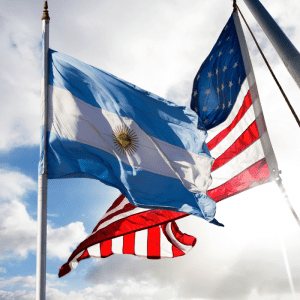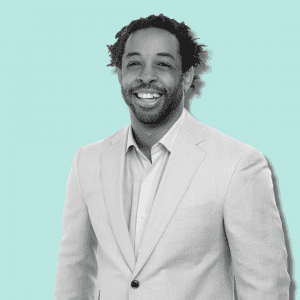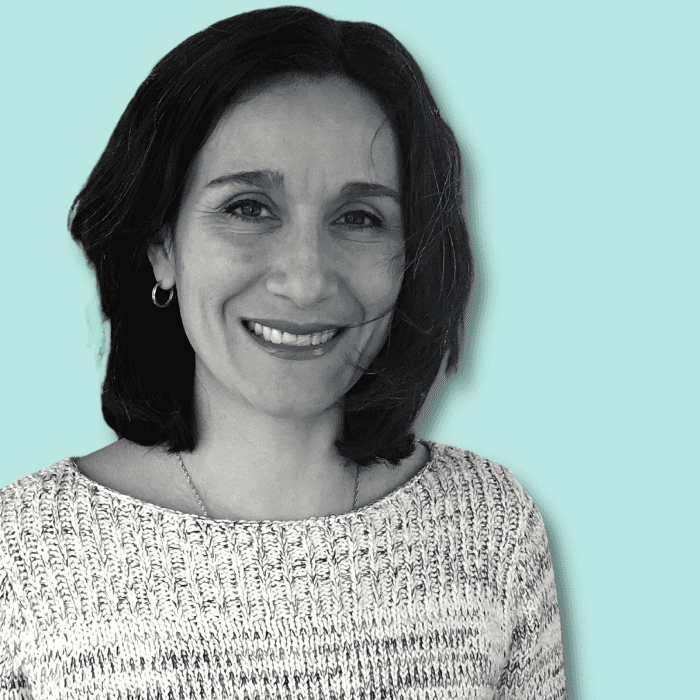
Latinx Voices: I Am Many Things
10/13/2022

Ariana Audisio on What Latina Identity Means to Her as a Person, Mother, and Advocate
When Ariana Audisio’s children entered the public school system in one of the most highly-rated districts in the United States, she was surprised by what she saw.
“I felt the joy and belonging part of school missing for my kids,” she says. “ I just went to a back-to-school night, and this teacher said, ‘We cannot learn the names of all the kids; it’s impossible. It’s too many kids.’ I remembered that all the teachers in my childhood schools—even those who didn’t teach me directly—knew my name. They knew my mom and dad, knew my brother and sisters, and they asked me about them. Seeing my kids’ experiences, I could not imagine how it was in a public district with far fewer resources. I wanted to make a change.”
Ariana, the daughter of a Venezuelan woman and an Italian immigrant, grew up in Venezuela, where she attended school from elementary school through college. Those experiences inform her perspective on education and her work to lead innovative data and research projects at Leading Educators.
I spoke with Ariana about her experiences as a Latina and an immigrant. She is eager to help others see the depth, complexity, and contradictions in Hispanic identity and Latinidad so there is a greater appreciation of difference as a strength. Throughout this conversation, we discuss feeling seen, motherhood, the purpose of school, and the power of data. It has been lightly edited for clarity and brevity.
The Inherent Complexity in latina Identity
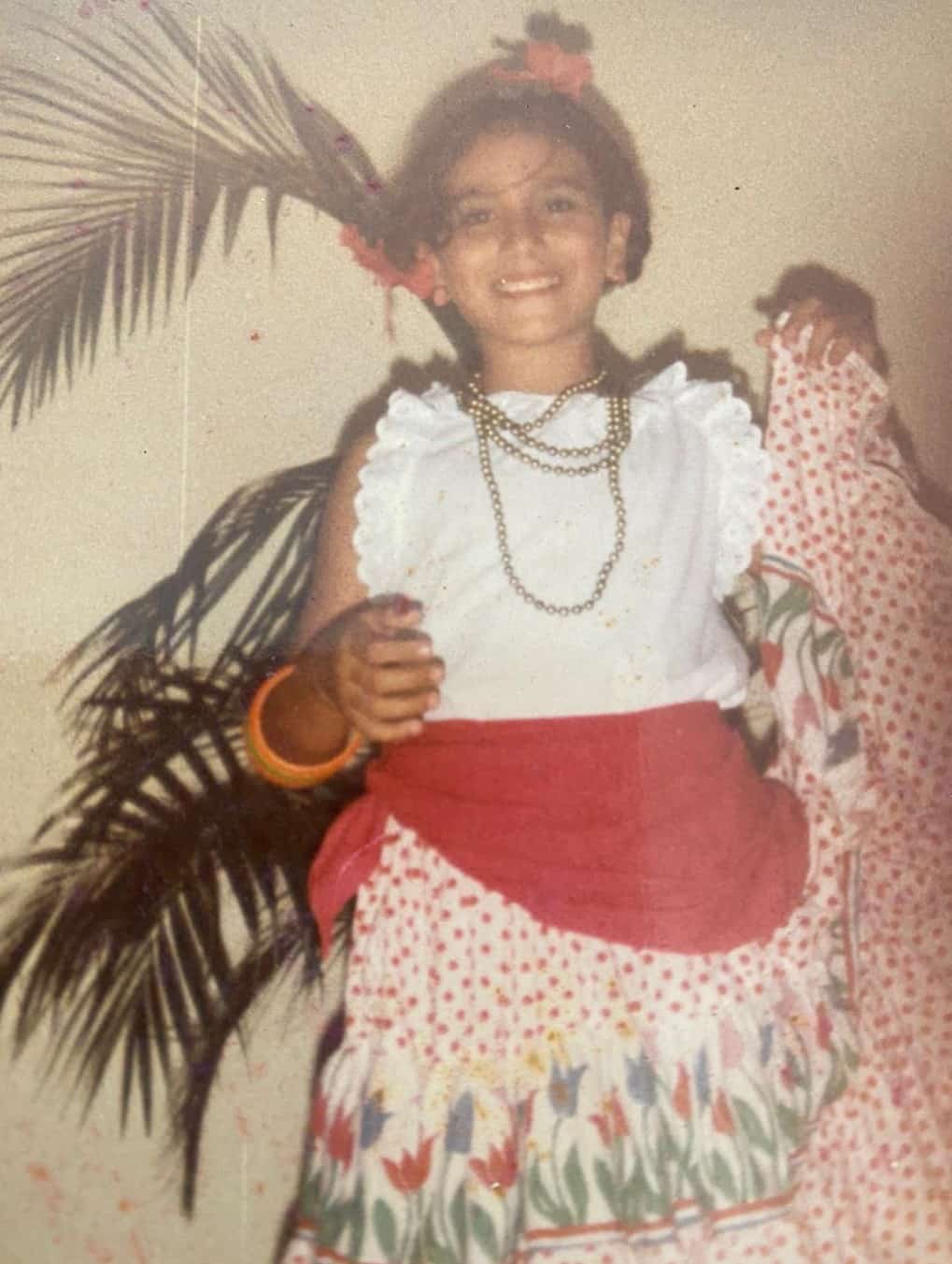
When I think about my identity, I see many things that are not only connected to where I come from. I see myself as a woman, as a mother. I’m the daughter of a Venezuelan woman and an Italian immigrant.
And more than Hispanic or Latino, I am a Venezuelan immigrant. I think the immigrant part is important.
Leaving the county of your childhood memories is hard. There’s the cultural change, the permanent nostalgia for what it was, and the pain of being so far away from your immediate and extended family. It’s a life-changing experience for anyone, especially for expatriates and people for which coming back is not a choice. Among other immigrants, I feel immediately connected. You need no explanations to feel empathy and an impulse to invite them home.
I’m married to a Cuban and Venezuelan man. For me, it’s important to recognize that the way I see myself helps me understand who I am and also understand and connect with others. Even if we have many commonalities across the different countries that are represented in this Hispanic or Latino group, we have big differences too.”
Kids Deserve to Be Seen
“I went to school, from kindergarten to college, in Venezuela. Venezuela at that time was very complex; it had some good public schools and others that lacked the most basic resources. My family was middle class, and I was lucky they could pay for private education, so I had the basic academic formation I needed. It was nothing too advanced or special, but I made some of my best friends and memories, and I was ready for college.
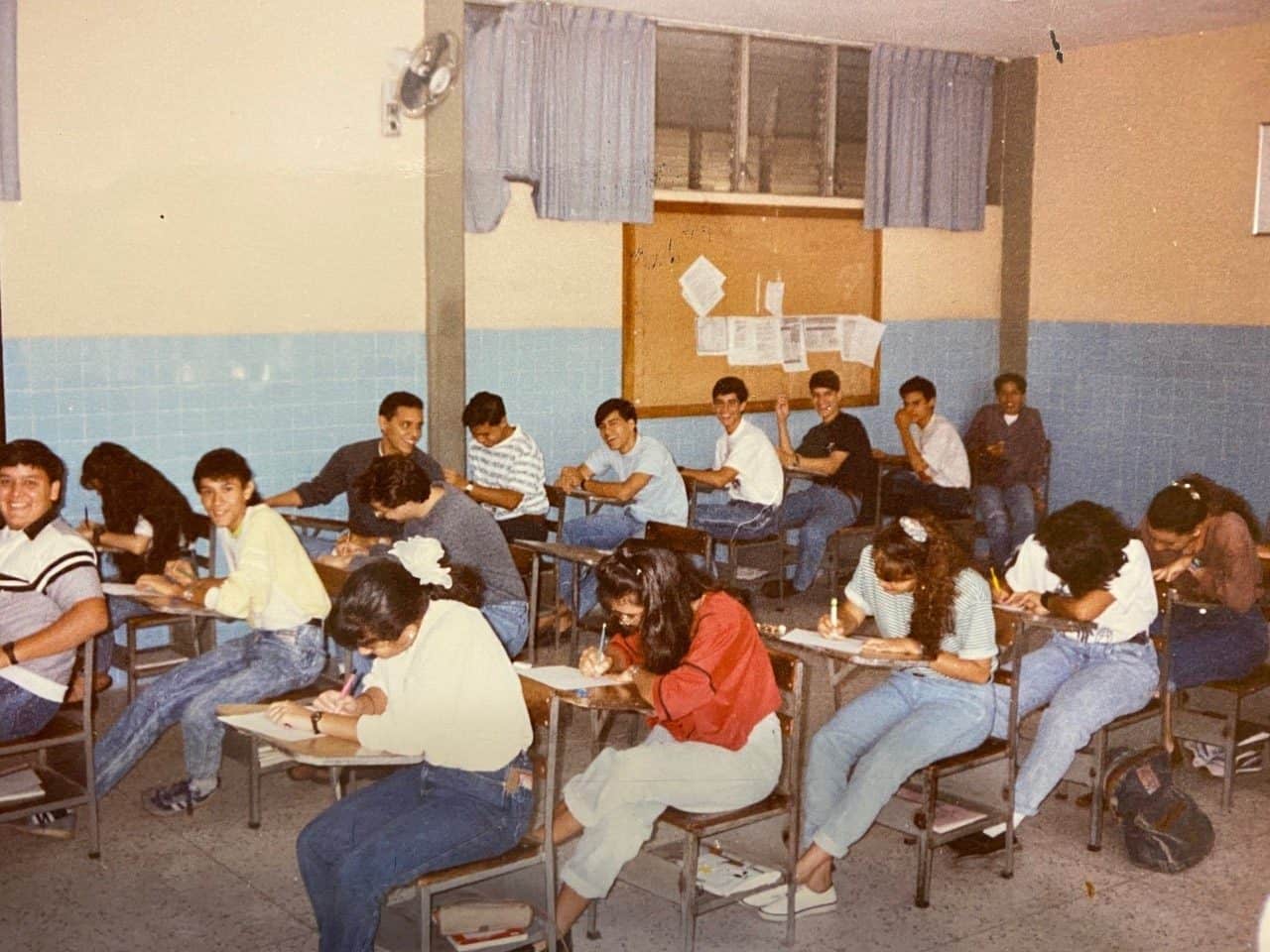
When I came to the United States, my kids started attending school here. I was also able to see what school was like for other students as a researcher. That was eye opening.
In kindergarten, my son was having problems staying in place. He was talking and raising his hand a lot, and the teacher—who had a master’s in multicultural teaching—told me that she saw it as a cultural difference. And I didn’t know what to do with that because it was like, ‘Which culture are you talking about?’ I don’t even know if she knew my country, if I was Hispanic or Latino, or anything about my home and how my kids were raised.
Later, in second grade, a teacher shared that he was not performing at grade level. That was a big surprise to us since we knew how extremely smart he was and how easy the content was for him; we knew that part of the problem was that he was bored. I had to ask for a full evaluation. They found what we knew: that he was extremely gifted and had executive functioning difficulties. Immediately after the results, his grades and report card comments changed as if my son had changed at all. It was the teacher’s perceptions and expectations that had changed.
I see people not understanding or not knowing many people outside their comfort and sometimes being afraid of getting to know people that look different than them. Mentally, maybe it’s easier to generalize and group people to make meaning. But once you get to know people as they are, you start to notice the commonalities and the differences.”
Good Education is More Than Academics
“Belonging and feeling seen changes everything. My kids know a lot more than I did at the same age. The world has changed, and information is everywhere. I see what I am today with the simple education that I had. I was able to go into my master’s program, learn another language as an adult, and live a life. And I see that my kids now are struggling more, and are just not happy while in school.
That love for learning that I saw when they were much younger at home when reading, and learning about every curiosity, it seems that it disappears when they go to school. They just can’t wait to get out of school, which is very sad. They can do very well on a test, and then they have no way to translate that to the life that they want to live. They don’t know how to make that connection. They don’t see that connection in school.
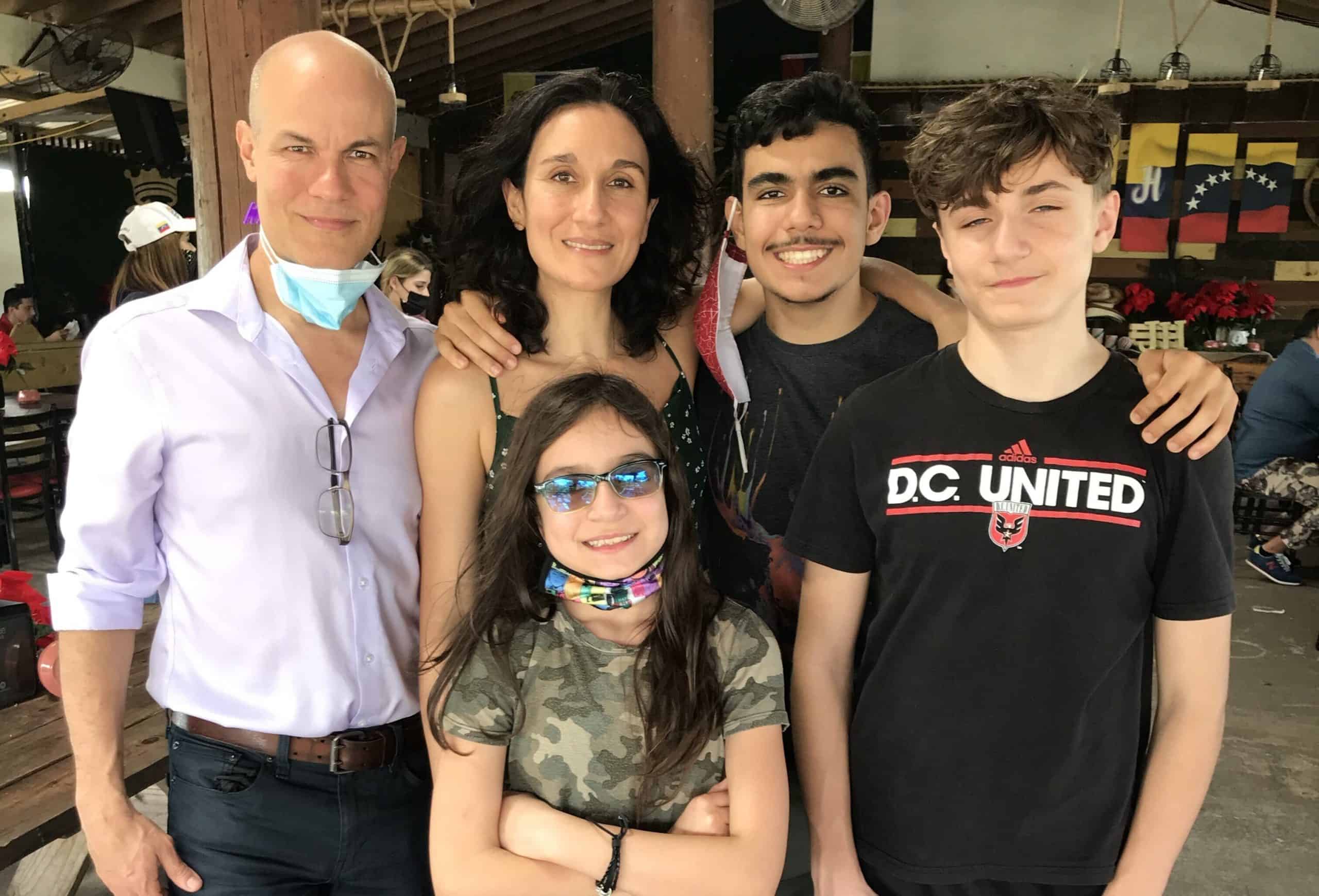
School is where they spend most of their time. It’s where they socialize. And there is no time for socializing at school because it’s [so focused on] academics. I had a 30-minute recess until my last year of high school. They have no recess. It’s only jumping from one class to the other. So, I think that focusing on academics is very important, but forgetting that kids are human beings is very dangerous.”
Education Should Be a Collaborative Practice
“I’ve been thinking a lot about my relationship with my kids’ schools. When they were in elementary, I used to be very involved in the school because elementary schools are usually smaller. But still, I found, like, a wall.
I could be in the school and feel part of the community but in a very artificial way. You couldn’t be part of many decisions or changes about how you wished it was because of this top-down way of administering our schools. I feel that it is important that we keep providing schools through public funding. But I do think that the administration should be a collaboration between parents, teachers, and the students, especially when they get older.
Teachers, parents, and the community should have the power to decide how they want their school to be. I understand that it’s hard in the big schools we have. I studied economics, and we talk about economies of scale. Sometimes public education here is like a factory where you want to increase the economies of scale by putting many kids in these big buildings. They try to put them on a production line that will make them all in the same way, and that’s not how it should be. Kids should feel like part of a community. For so many kids in the United States, it seems like you just attend the school but that it’s not your school.”
The Power of Data
I see my work as transforming data and information from many different sources into tools and knowledge that can be easily used for decision-making. And I see that there is a lot of power and responsibility in doing that.
Every day, I try to find ways to transfer that power or share that meaning-making with the community, especially those rarely involved in decision-making. Why shouldn’t students, especially when they get to high school, get to study how they learn, own their information, and understand what is working for them and what doesn’t work? I wish we had more time to sit around the table with teachers looking at the data. ‘This is what happened,’ and decide, ‘Oh this is something we should look at next,” and maybe design an experiment together.
My wish is that teaching grows as a profession, like lawyers and doctors, where educators can grow as leaders and take on many different roles. District leaders shouldn’t be the only ones that decide what teachers should be doing or what they want to research in their schools.”
Why Identity Matters
“Even with all the imperfections of grouping so many different people in one category, I see that labels have value and meaning. When I went to the back-to-school night at my kids’ school this year, I was surprised to hear that the background music was some nice salsa music while we were moving from one room to the other. I felt happy when I heard it. I know that they were doing it because of Hispanic Heritage Month. Nevertheless, it made me happy.
I think [that kind of acknowledgment] is nice, like in the same way we have a birthday, right? Even if we celebrate the life of our friends and family every day, there is this special day when we recognize them, or there’s something a little bit more special. That matters.”



